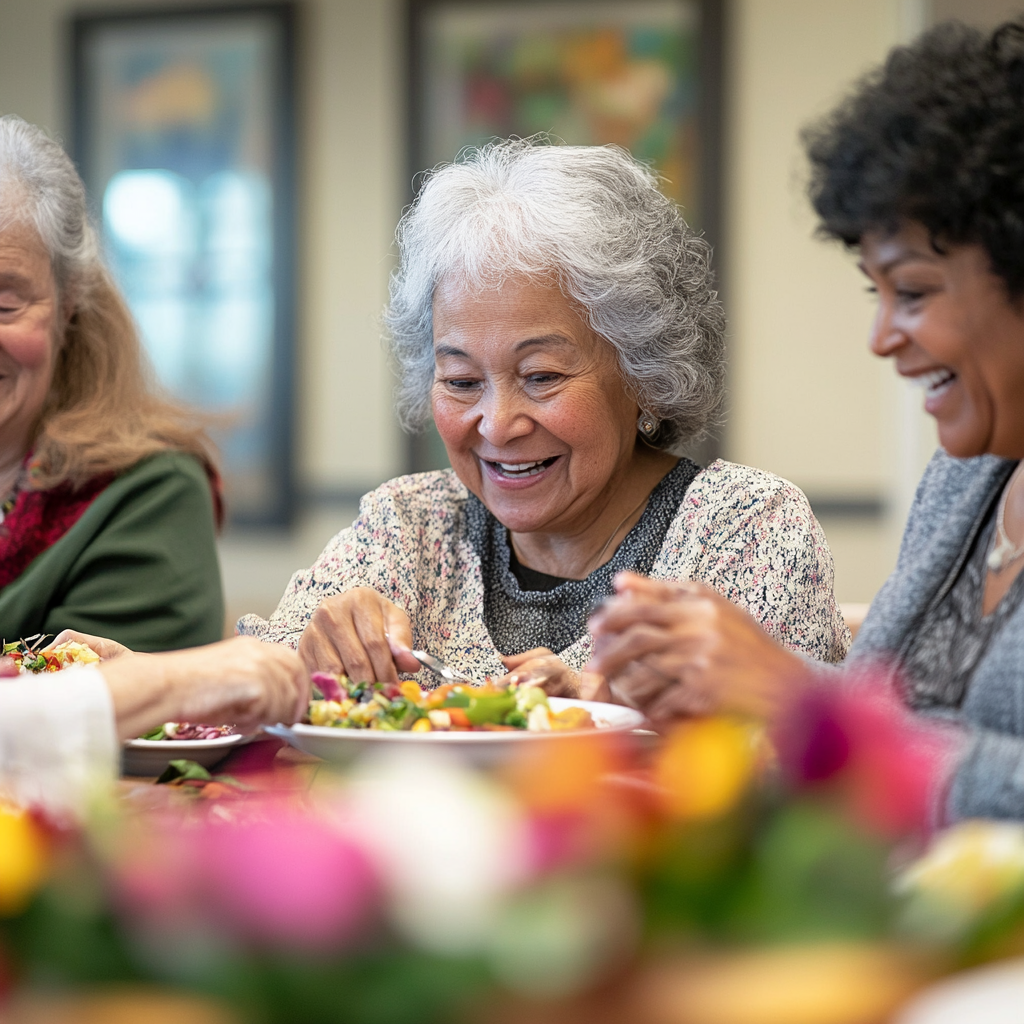Cultural competence plays a crucial role in assisted living settings, significantly influencing the quality of care provided to residents. As senior communities continue to grow increasingly diverse, understanding and respecting differing cultural backgrounds becomes vital. A culturally competent approach ensures that the unique needs of each resident are met, enhancing their overall well-being and satisfaction in their new home.
Understanding Cultural Competence
Cultural competence in healthcare and senior living refers to the ability to process and respond to the cultural differences and needs of individuals.
- Definition: In essence, cultural competence embodies the awareness, knowledge, and skills necessary for caregivers to effectively interact with individuals from various cultural backgrounds.
- Importance: Culturally competent care is essential; it paves the way for improved resident well-being and satisfaction. By acknowledging and accommodating diverse cultural practices and preferences, assisted living facilities can foster healthier, happier environments for their residents.
The Importance of Cultural Competence in Assisted Living
Enhancing Communication
Cultural awareness is fundamental in improving interactions among staff, residents, and families.
- Effective Communication: Recognizing language preferences and cultural nuances enables staff to communicate effectively with residents. This builds rapport and trust, encouraging residents to express their needs and concerns openly.
Building Trust
Understanding cultural beliefs and practices strengthens relationships between caregivers and residents.
- Trusting Relationships: When residents feel that their cultural backgrounds are respected and valued, they are more likely to trust staff members, leading to a cooperative environment where individuals feel they are receiving care that aligns with their values.
Improving Care Outcomes
Cultural competence in assisted living has been linked to better health and emotional outcomes.
- Evidence of Success: Research indicates that communities that embrace cultural competence experience improved resident satisfaction, lower hospitalization rates, and enhanced overall health. These positive outcomes highlight the critical need for a culturally competent approach to care.
Recognizing Diverse Needs in Assisted Living
As senior communities become more diverse, recognizing the varying backgrounds of residents is essential.
- Overview of Diverse Groups: Assisted living facilities may host residents from numerous cultural groups, each bringing unique traditions, languages, and preferences.
- Varying Needs: Understanding these differences is important as they relate to language, dietary preferences, religious practices, and social activities. For instance, some residents may require special meal accommodations, while others may celebrate different religious holidays which should be acknowledged within the community.
- Respect and Recognition: Acknowledging and respecting individual backgrounds fosters an environment of inclusion and belonging, making residents feel valued and understood.
Creating a Culturally Competent Environment
Hiring Staff with Cultural Awareness
The foundation of a culturally competent environment starts with staffing.
- Diverse Hiring Practices: Recruiting staff members who reflect the diverse backgrounds of the residents is crucial. These caregivers can relate to and better understand residents’ cultural needs, facilitating more meaningful interactions.
Training and Education
Ongoing training in cultural competence is essential for all employees.
- Implementation of Training Programs: Equipping staff with cultural competence training ensures they remain sensitive to individual needs and are prepared to provide care that respects cultural beliefs and preferences.
Encouraging Open Dialogue
Establishing a culture of open communication fosters understanding.
- Creating Safe Spaces: Encouraging residents and families to share their cultural beliefs and preferences helps staff provide personalized care that aligns with individual values.
Incorporating Cultural Practices into Care
Personalizing Care Plans
Integrating cultural preferences into residents’ care plans is fundamental.
- Personalized Strategies: Care plans should consider individual dietary needs, preferred activities, and connection to cultural traditions, making residents feel regarded and respected.
Celebrating Cultural Events
Recognizing and celebrating cultural holidays can enhance community spirit.
- Cultural Recognition: Organizing events that acknowledge and celebrate various cultures promotes understanding and fosters recognition within the community.
Providing Culturally Appropriate Activities
Engaging residents in culturally relevant activities enriches their experience.
- Examples of Activities: Offering cooking classes, arts and crafts based on cultural traditions, or showcasing cultural films helps residents connect with their heritage while promoting socialization and engagement.
Language Access and Communication
Addressing language barriers is essential for effective communication in assisted living environments.
- Language Support: Implementing translation services, hiring bilingual staff, or utilizing technology can help bridge communication gaps, ensuring that all residents receive clear and comprehensible information regarding their care.
Feedback and Continuous Improvement
Continuous assessment and feedback are keys to cultural competence.
- Seeking Feedback: Regularly engaging residents and their families in conversations about cultural competence initiatives allows facilities to understand their perspectives and make necessary adjustments.
- Assessing Progress: Conducting regular evaluations of cultural competence efforts will identify areas for improvement and promote an ongoing commitment to enhancing the care experience.
Conclusion
Cultural competence in assisted living is pivotal for creating inclusive, supportive environments that enhance the quality of care provided to residents. By valuing and respecting diverse backgrounds, assisted living communities can ensure that residents experience meaningful connections and personalized care.
If you wish to learn more about how Courtyard Gardens is implementing cultural competence initiatives, we invite you to engage with us. Let’s work together to ensure that every resident feels valued and supported in their new home.


